Polly Arnold is a champion of actinide chemistry and diversity in science. Kit Chapman asks her what comes next as she starts her new role at a US national lab
‘Do I have imposter syndrome?’ Polly Arnold raises an eyebrow at the question, as if it’s the most obvious thing in the world. ‘Yes, of course I do. Everybody who didn’t go to Eton has imposter syndrome. Not just the women, it’s the men who didn’t go to a brilliant school, too. The only people who don’t have imposter syndrome are those told from childhood they’re born to rule.’
It’s a disarmingly honest admission of self-doubt from one of the most influential chemists in the world. In September 2019 Arnold moved from her position at the University of Edinburgh, UK, to become director of the chemical sciences division at Lawrence Berkeley National Laboratory in the US. ‘I’ve joked in the past that I didn’t want to be a head of school because nobody realises the work you do,’ she says. ‘But at Berkeley, all the directors are full-on, card-carrying scientists, and there’s a strategic approach to the managing. You are herding a bunch of people who do team science and have bought into that ethos. In academia, the rewards come working independently. At Berkeley the atmosphere is very different. The Department of Energy wants to fund basic energy science research, and it wants the scientists to define the future problems, and prevent humans doing more damage to the planet. It’s a two-way conversation.’
Make americium great again
Arnold’s career path shows she has more than earned her right to be heard. Raised in London, UK, she studied at the University of Oxford and was a Fulbright fellow at the Massachusetts Institute of Technology, US. Already a fan of sewing (‘it’s engineering in fabric’) and making 1950s vintage dresses, when she took the Crum Brown chair at Edinburgh she learned to knit like her predecessor. However, she doesn’t feel bound to traditions, showing a strongly individualistic streak and playing by her own rules. An actinide chemist, she doesn’t feel any pressure taking over the very lab where the many of the transuranic elements were discovered – including berkelium, named after the laboratory, lawrencium, named after founder Ernest Lawrence, and seaborgium, named after Berkeley chemist Glenn Seaborg. ‘I’m terrible at history,’ she confesses. ‘It’s quite nice to walk into an old building, but to be honest I prefer the future. I know it’s not cool, but I can’t see the point in looking backwards.’
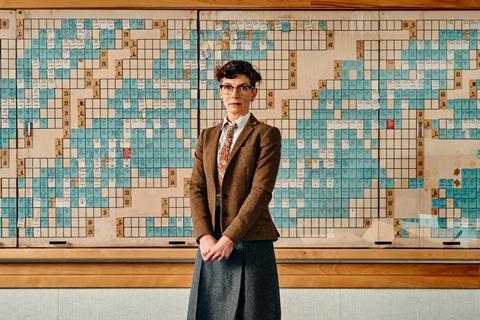
Today her vision is focused around heavy element chemistry, with her current research centred around d- and f-block organometallic compounds. ‘Currently we’re looking at neptunium. Just because it’s not as trendy as uranium or plutonium doesn’t mean it’s not interesting.’ The f-block is a culture shock for many of her PhD students, she says, who come into the lab completely unfamiliar with chemistry using radioactive elements. ‘It’s funny going around a lab where you have to learn the isotopes, not just the letter of the element but the number. And when you are dealing with compounds that are paramagnetic, that have not been part of the routine syllabus for undergraduates … I don’t think my students and postdocs get enough recognition for how difficult the work is. I get these brilliant people, the biggest fish from their pond, and I ask them to do a project where only 10% of their reactions will work. They have to realise it’s not them, it’s the chemistry. I have to flip their mindset from never failing to “you’re not failing when this doesn’t work so long as every reaction tells you something about your system”. It’s a difficult thing to learn.’
There’s nothing I like more than someone in my lab proving me wrong. That makes me feel like a proper scientist
Unlocking the mysteries of the heavy elements is a driving force for Arnold – even if she has no idea what she’s going to find. In contrast to many chemists, Arnold doesn’t look to find an answer to a problem, instead taking a more freeform approach. ‘I don’t want to make yet another 18-electron compound,’ she says. ‘I only do chemistry that is teaching us something new or scaring us. I’m not interested in targeting the solution to an end goal. If I were choosing one goal, I wouldn’t be starting where my imagination and expertise work best, I’d be behaving like a company. Academia is terrible at doing that.’
Arnold insists her actinide work is ‘totally fundamental’. ‘I love it when we make a good catalyst, and we’ve sometimes patented them, but I’m not interested in starting a company. I’m worried that when you ask venture capitalists for start-up funds, you have to believe your own propaganda. That’s contrary to everything a scientist should be. The moment you believe your own hype you are at risk of no longer being pleased to be proven wrong by your own students, and that’s dangerous … there’s nothing I like more than someone in my lab proving me wrong. That makes me feel like a proper scientist.’
She admits that actinide chemistry isn’t moving as quickly as other scientific areas, with research still lingering in the shadow of cold war-era secrecy. ‘Unpublished research makes it difficult because you don’t know what’s known until you start going to conferences,’ she sighs. ‘There was a while when people like the Atomic Weapons Establishment were saying we need to hire more people because we could lose the encyclopaedic knowledge of people retiring. It’s got better, but it’s still a global worry.’
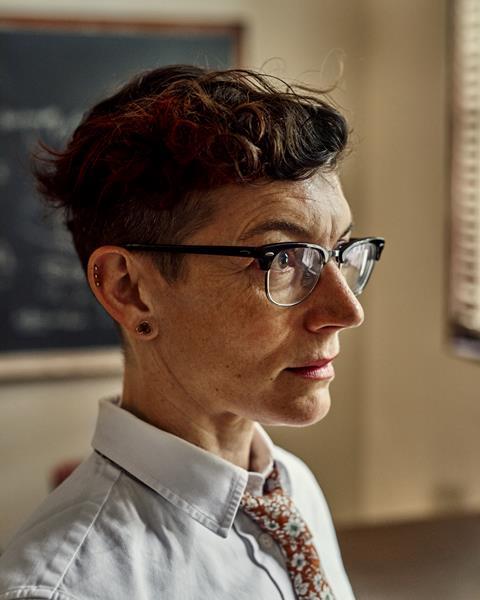
Without direct applications, funding is another major issue of contention – and with it the potential for career progression. ‘It bothers me that if you come into [nuclear chemistry] as a PhD or postdoc, the timescales to get results are slower and you can struggle to get the set of Science or JACS papers everyone needs for a fellowship these days,’ Arnold says. It might be that more up-to-date forms of publishing can help the community. ‘From the moment we understand a new neptunium compound we need to tell people what we’re doing. We mustn’t waste taxpayer money, but you can’t publish until you’ve spoken to the physicists and understood the magnetism, or until you have something to teach people. I wonder if ChemRxiv could be a good way to keep the community informed.’
Arnold collaborates ‘left, right and centre on varied timescales’ to make sure she brings in the varied expertise to understand the compounds, be it from chemists or physicists. However, she believes that the drift toward large international projects focused on one goal can be a danger to progress. ‘People think all scientific problems can be solved by collaborative teams,’ she muses. ‘It seems like governments love awarding big sums, and the research councils are under so much pressure to lower their admin costs and save money you can understand why. It looks like they are solving a big problem – but it’s not necessarily so. Putting us all into big teams mean we collaborate with the people we should be thinking independently from. I’m not necessarily talking about competition – we can celebrate each other’s successes – but if we all go into big teams there’s a danger people are too scared to suggest a risky, crazy idea. If you don’t let people have space to explore random ideas then you end up with groupthink, which is dangerous.’
Despite now being a director at the original home of ‘big science’, Arnold insists she prefers life away from the crowds. ‘I love being isolated and being an introvert,’ she says. ‘A lot of people can listen to music until they cry, but for me it’s pictures. I like looking at things. If I were insanely rich, I’d buy Francis Bacons, and large brown canvases full of marble dust, and sculptures, giant sculptures, and a house with a giant garden to fit them in.’
Her favourite means of escape is to go running. ‘No one can contact you, it’s a form of meditation. The thinking process is like shaking a bag of paperclips: as long as you’ve accumulated enough information, after a while the bag has been sufficiently shaken up and you can pull out that long string of paperclips all perfectly chained together and you can see the answer you are looking for, or the question you need to ask. I just wish I’d known at the start of my career that my ideas were good! That people weren’t doing something not because it couldn’t be done, but because they hadn’t thought of it yet.’
Diverse interests
Another passion is embracing and harnessing the potential of diversity in science. ‘I was told that was one of the reasons Berkeley wanted me – my track record in diversity,’ Arnold says. ‘They are really conscious about it, open about where there are problems, and want to do things better. There are are different minorities here, and there’s some budget here to do things so that’s quite exciting.’
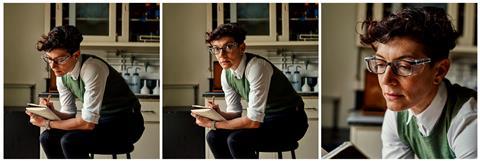
This support for the underdog can manifest itself in unexpected ways – particularly when she gets a chance to surprise unsuspecting chemists at conferences. ‘I get such a nice moment when I spring up behind a postdoc and say: “I really enjoyed your talk, it was really cool!” They look shocked, and it’s such a secret pleasure. That’s one thing I love about Twitter, too – you can spend five minutes just liking the important and brilliant comments made by young people.’
Arnold sits on the board for the Dorothy Hodgkin fellowship at the Royal Society and is the chair of the Royal Society of Chemistry’s inclusion and diversity committee, work that saw her appointed an officer of the Order of the British Empire in 2017 for her services to chemistry and women in Stem ‘The OBE made old white men listen to me,’ she laughs. ‘It was amazing, like I had grown 30cm and my voice lowered an octave. I had access to the patriarchy. All of a sudden, I was in the club.’
Chemistry is a powerful central science and it shouldn’t have an image problem, but we’re all self-conscious
While at Edinburgh, Arnold supported Inclusion Matters, part of 11 initiatives funded by a £5.5 million scheme from the Engineering and Physical Sciences Research Council. The initiative’s focus is to build an evidence base to look at inequalities in large-scale grant applications, building research to look at how to make science fairer. ‘We all need to change the way we define leadership, and the way we give access to money to a diverse range of researchers,’ Arnold explains. ‘Not everyone is realising their potential and it is an economic waste. So we’re looking at the pinch-points and how to get the best person to find, lead and grow the team that gets the big grant. We’re looking at all the tiny areas, taking a systems-based approach to how institutions and UK science functions.’
As part of the Dorothy Hodgkin fellowship panel, Arnold has already seen some of these pinch-points up close. ‘The interesting thing is watching how horrible chemists are to each other. Chemists are the meanest of the scientists – they’re so tough on each other, like they are on themselves. That’s a sign of being a great scientist, being overly critical. But if you are overly critical to everyone else it doesn’t really do the discipline any good … Chemistry is a powerful central science and it shouldn’t have an image problem, but we’re all self-conscious now. We felt good for a while. Remember when Breaking Bad came out? We felt cool then.’
This self-consciousness has reverberated into the public perception of chemistry, particularly in underserved populations such as the black and minority ethnic communities. And, despite great attempts at outreach, we still haven’t made it clear that chemistry is for everyone, Arnold argues. ‘I live in a university bubble,’ she says. ‘I never see really young or really old people. When I get on the bus, I suddenly realise that I’m seeing a portion of the world that I am not exposed to. That’s bad, isn’t it? When you think about all the outreach we should be doing, all that taxpayer money and how important it is to tell them I’m not wasting it, but when I see an audience at a science festival they look like me. When people go to the wrong school, or whose parents haven’t heard of science, they can think the only good job is being a doctor. There is a greater chance to do good for humanity as a chemist who develops the next drug, solves the clean water problem or finds a good catalyst that can desalinate water at low energy.’
Such engagement isn’t a new idea. But while many initiatives in the past have improved access for students, they have always been too short-lived to make a real difference, Arnold says. ‘When we started [investigating the problem], not one single woman had led a programme grant from start to success. Now there is one. And in terms of genuine minorities it’s even worse – people are so sick of ticking boxes that the error bars are widening and are now larger than the minority number!’
One of the most pernicious problems when addressing diversity is unconscious bias: the barriers that exist because of societal norms that we don’t even consider. ‘Unconscious bias means we have to make our candidates brilliant,’ Arnold says. ‘We have to make them 10% better than everyone else or we’ll be setting them up to fail, and that’s horrific. Someone said to us that we are encouraging women and girls into jobs where they are going to be discriminated against and paid less, are we mad? But we have to start somewhere. And we’ve got some really good allies, people who will help. I’m seeing that on committees more and more, people are getting better.’
I can’t stop now people are listening to me!
There is still quite a way to go. ‘The problem with unconscious bias is that it’s just so boring,’ Arnold says. ‘It’s like being on a diet – it’s boring and not fun. But it should be boring and repetitive, and one day it’ll be like wearing seatbelts – eventually people will just understand, and get on with keeping all the voices in.’
Until then, she has no intention of ending the conversation. ‘I preach work–life balance, but I don’t have it. I keep promising I’ll say no to more things, as all the inclusion and diversity stuff is in my spare time. But I do it because I can and it matters. People have given me the power and voice to do it. I can’t stop now people are listening to me! I have a chance to make things better for everyone.’
Kit Chapman is a science writer based in Southampton, UK
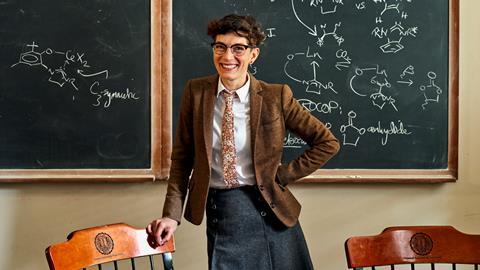

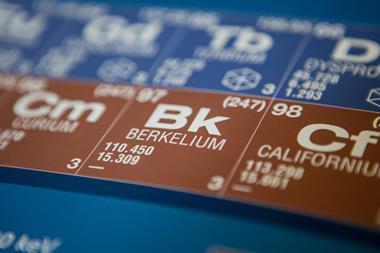
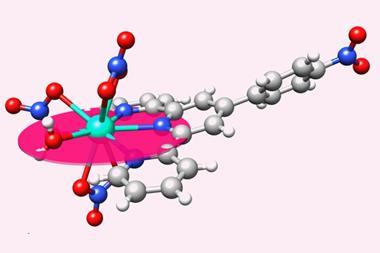

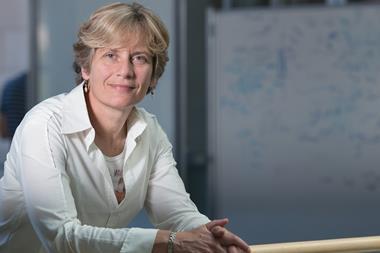
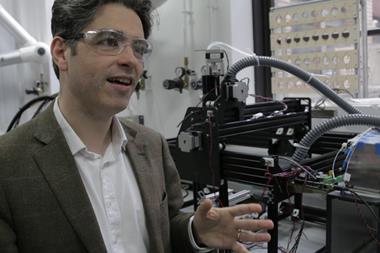
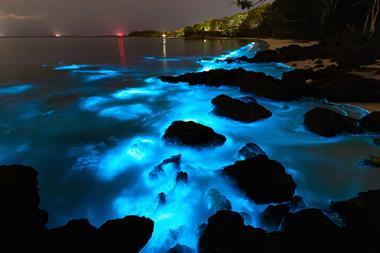




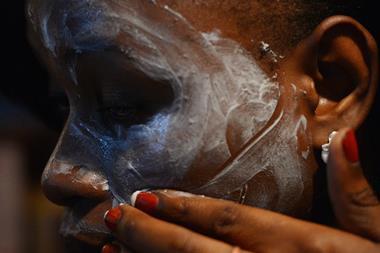
No comments yet